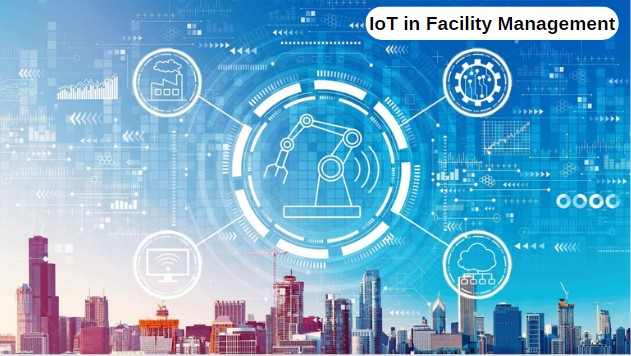
Role of IoT in Facility Management
Pratik Lohiya |
19 Mar 2024 |
07:12 AM
- Defining Facilities Management (FM)
- Understanding IoT in Facility Management
- Overview of Facility Management
- Understanding the Role and Scope
- Trends in Facility Management Software
- Leveraging IoT for Improved Facility Management Systems
- IoT Devices for Facility Management
- Advantages of Using IoT in Facility Management System
- Conclusion
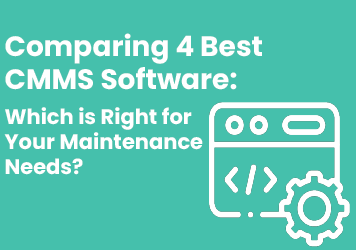
Comparing 4 Best CMMS Software: Which is Right for Your Maintenance Needs?
Madhurima Sanyal 22 Jun 2024 | 06:32 AMLearn how to choose the best CMMS software with our detailed comparison. Explore key features, pricing, types, and top recommendations for small businesses and industries....
Facility management (FM) is a critical component of modern business operations, encompassing the efficient maintenance, operation, and oversight of physical assets and infrastructure within an organization. Facility managers play a pivotal role in ensuring the smooth functioning of buildings, equipment, and utilities, thereby optimizing the workplace environment for employees and visitors alike.
Defining Facilities Management (FM)
In recent years, the integration of Internet of Things (IoT) technology has revolutionized the field of facility management. IoT devices, ranging from sensors to advanced software platforms, enable real-time monitoring, data collection, and analysis of various aspects of facility operations. This enhanced connectivity and automation empower facility managers to make data-driven decisions, streamline processes, and proactively address maintenance issues.
Understanding IoT in Facility Management
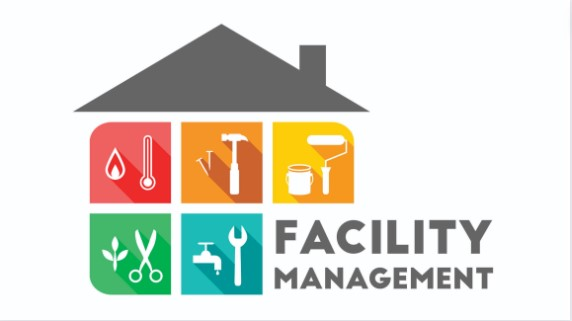
Understanding IoT in Facility Management industry involves leveraging interconnected devices and systems to optimize resource utilization, enhance operational efficiency, and improve occupant comfort and safety. By harnessing the power of IoT devices and analytics, facility managers can gain valuable insights into energy usage, space utilization, equipment performance, and more, ultimately driving cost savings and sustainability initiatives.
Overview of Facility Management
Facilities management (FM) is a multifaceted discipline that encompasses the management of physical assets, infrastructure, and environments to ensure the optimal functionality of buildings and facilities. At its core, facility management involves coordinating various aspects such as predictive maintenance, operations, space utilization, safety, and security to create conducive and productive environments for occupants.
Understanding the Role and Scope
Facility managers play a pivotal role in overseeing the day-to-day operations of facilities, ensuring that they meet the needs of occupants while adhering to regulatory requirements and industry standards. They are responsible for strategic planning, budgeting, procurement, and vendor management, as well as implementing sustainable practices to minimize environmental impact and reduce operational costs.
Importance of Efficient Facility Management
The importance of efficient facility management cannot be overstated, particularly in today's dynamic business landscape. Well-managed facilities contribute to employee productivity, satisfaction, and overall organizational success. Effective facility management also plays a crucial role in enhancing brand reputation, attracting and retaining talent, and providing a safe and healthy work environment.
In an increasingly digital and interconnected world, the role of technology, including IoT devices and facility management software, is becoming increasingly prominent in optimizing facility management processes. By leveraging advanced technologies, facility managers can streamline operations, improve decision-making, and enhance the overall performance and efficiency of facilities.
Trends in Facility Management Software
As the complexity of facility management continues to evolve, organizations are increasingly turning to advanced software solutions to streamline operations and enhance efficiency. Here, we explore some of the key trends shaping the landscape of facility management software:
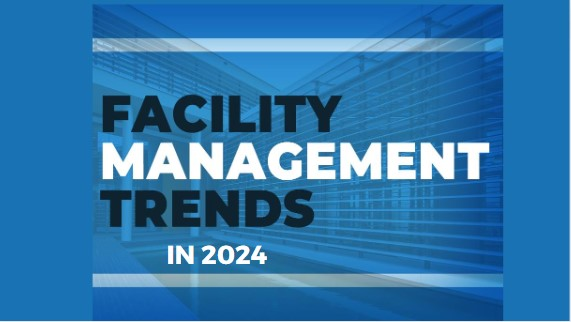
Third-Party Integrations
Modern facility management software platforms are designed to seamlessly integrate with third-party systems and applications. By connecting with existing infrastructure such as building automation systems, security systems, and energy management systems, facility managers can centralize data management and gain comprehensive insights into facility performance.
AI and Predictive Analytics Tools
Artificial intelligence (AI) and predictive data analytics are revolutionizing facility management solutions by enabling proactive decision-making and preventive maintenance strategies. These advanced tools analyze vast amounts of real time data to identify patterns, predict equipment failures, and optimize resource allocation, ultimately reducing downtime and operational costs.
Cloud Computing
Cloud-based facility management software offers flexibility, scalability, and accessibility, allowing users to access critical information anytime, anywhere. By leveraging cloud computing technologies, facility managers can streamline collaboration, improve data security, and lower IT infrastructure costs, thereby enhancing overall operational efficiency.
Enhanced Security Measures
With the growing emphasis on security and compliance, facility management software solutions are incorporating robust security features to protect sensitive data and ensure regulatory compliance. From access control systems to encryption protocols, these measures help safeguard facilities against cyber threats and unauthorized access.
Mobile Accessibility
The rise of mobile technology has transformed the way facility managers access and interact with software applications. Mobile-friendly interfaces enable on-the-go access to key facility data, work orders, and maintenance schedules, empowering facility managers to respond swiftly to issues and make informed decisions while in the field.
Leveraging IoT for Improved Facility Management Systems
Facilities managers are continually seeking innovative solutions to optimize operations and enhance efficiency. One such solution is the integration of IoT facility management systems. Let's explore how leveraging IoT can lead to improved facility management:
Sensor-Based Automation
IoT devices such as sensors and actuators play a crucial role in automating various aspects of facility management. These sensors can monitor environmental conditions, equipment performance, and occupancy levels in real time, allowing facility managers to respond promptly to changes and optimize resource allocation.
Cost Reduction and Operating Efficiency

By harnessing the power of IoT, facility managers can identify inefficiencies and optimize resource utilization to reduce operating costs. For example, IoT-enabled energy management systems can analyze energy usage patterns and implement strategies to minimize waste, leading to significant cost savings over time.
Enhancing Employee Performance
IoT technology can also improve employee performance and productivity within facilities. For instance, wearable devices equipped with sensors can track employee movements and provide valuable insights into workflow optimization and ergonomic improvements, ultimately enhancing employee satisfaction and performance.
Transparency in Operations
One of the key benefits of IoT in facility management is the transparency it provides into operations. Real-time data collected from IoT devices allows facility managers to monitor performance metrics, track key performance indicators, and identify areas for improvement, fostering accountability and transparency across the organization.
Efficient Risk Mitigation Strategies
IoT-enabled predictive maintenance tools can help facility managers anticipate equipment failures and proactively address maintenance issues before they escalate. By implementing predictive maintenance strategies, facilities can minimize downtime, reduce repair costs, and ensure the uninterrupted operation of critical systems.
IoT Devices for Facility Management
By leveraging these IoT devices and technologies, facility managers can optimize resource utilization, improve operational efficiency, and enhance the overall performance of their facilities.

Sensors and Their Applications
Sensors are perhaps the most versatile IoT devices used in facility management. These small, interconnected devices can monitor various environmental parameters such as temperature, humidity, air quality, and occupancy levels. By providing real-time data insights, sensors enable facility managers to make informed decisions regarding energy usage, space utilization, and occupant comfort.
Equipment and Embedded Beacons
IoT-enabled equipment and embedded beacons are revolutionizing asset management within facilities. These devices can track the location and status of equipment and assets in real time, allowing facility managers to optimize maintenance schedules, prevent loss or theft, and ensure compliance with regulatory requirements.
RFID Trackers for Asset Management
Radio-frequency identification (RFID) trackers offer a reliable and cost-effective solution for tracking and managing assets across large facilities. RFID tags attached to equipment, inventory, or personnel can be scanned remotely using RFID readers, providing instant access to critical asset-related data and improving inventory management processes.
Automated Vehicles for Logistics
Autonomous or automated vehicles equipped with IoT technology are increasingly being used in facility management for logistics and transportation tasks. These vehicles can navigate warehouse spaces, transport goods, and perform routine maintenance tasks autonomously, freeing up human resources for more complex and strategic activities.
Utilizing Data Analytics and Visualization Tools
Data analytics and visualization tools are essential components of IoT-driven facility management systems. These tools collect, analyze, and visualize data from various IoT devices, providing facility managers with actionable insights into operational performance, energy consumption patterns, equipment health, and more. By harnessing the power of data analytics, facility managers can identify trends, optimize processes, and drive continuous improvement initiatives.
Advantages of Using IoT in Facility Management System
Reducing Energy Waste
IoT-enabled sensors and smart devices provide real-time insights into energy consumption patterns, allowing facility managers to identify inefficiencies and implement energy-saving measures. By optimizing HVAC systems, lighting controls, and equipment usage, facilities can significantly reduce energy waste and lower utility costs.
Increasing Facility Efficiency
IoT technology enables proactive maintenance and asset management, minimizing downtime and optimizing equipment performance. Predictive maintenance algorithms analyze data from sensors to detect potential issues before they occur, ensuring uninterrupted operation and maximizing the efficiency of facility assets.
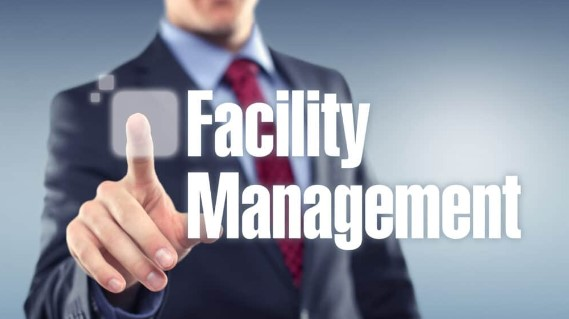
Facilitating Technology Trends
IoT facilitates the adoption of emerging technologies such as artificial intelligence (AI), machine learning, and augmented reality (AR) in facility management. These technologies enhance decision-making, automate routine tasks, and improve operational effectiveness, keeping facilities at the forefront of technological innovation.
Capturing and Analyzing Building Data
IoT devices collect vast amounts of data on various aspects of facility operations, from occupancy levels to environmental conditions. Advanced analytics tools process this data to generate actionable insights, enabling facility managers to optimize space utilization, improve occupant comfort, and enhance overall building performance.

Supporting Complex Applications and Operations
IoT in facility management enables the implementation of sophisticated applications and operations that were previously unattainable. From smart building systems to integrated workplace management solutions, IoT technology provides the foundation for managing complex facilities efficiently and effectively.
By harnessing the advantages of IoT in facility management systems, organizations can achieve greater operational efficiency, reduce energy costs, and enhance the overall performance and sustainability of their facilities.
Conclusion
The integration of Internet of Things (IoT) technology into facility management has ushered in a new era of efficiency, optimization, and innovation. By leveraging IoT devices, facility managers can streamline operations, enhance performance, and drive sustainable practices across a wide range of facilities. Throughout this article, we have explored the multifaceted role of IoT in facility management, touching upon key trends, challenges, and advantages shaping the industry landscape.
From sensor-based automation to predictive maintenance algorithms, IoT-enabled solutions offer unprecedented insights and capabilities to facility managers. By harnessing real-time data analytics and visualization tools, organizations can optimize resource utilization, reduce energy costs, and improve operational efficiency. Moreover, IoT facilitates seamless integration with existing facility management systems, allowing for enhanced collaboration, communication, and decision-making among stakeholders.
One of the standout advantages of IoT in facility management is its ability to support complex applications and operations. From smart building systems to waste management processes, IoT technology provides the foundation for managing diverse facilities with precision and effectiveness. Additionally, customizable data access permissions ensure that sensitive facility-related data is securely managed and compliant with regulatory requirements, safeguarding against potential risks and breaches.

Furthermore, the role of IoT extends beyond operational efficiency to encompass strategic planning and future-proofing of facilities. By capturing and analyzing building data, organizations can gain valuable insights into occupancy trends, space utilization patterns, and environmental conditions, empowering informed decision-making and long-term planning.
As the facility management industry continues to evolve, it is imperative for organizations to embrace the transformative potential of IoT technology. By partnering with reputable facility management companies and investing in state-of-the-art IoT solutions, businesses can stay ahead of the curve and unlock new opportunities for growth and innovation.
IoT is not just a tool but a catalyst for driving smarter, more sustainable facility management practices. By embracing IoT technology, organizations can optimize performance, reduce costs, and create environments that are safer, more efficient, and more conducive to productivity and well-being. As we look towards the future, it is clear that the integration of IoT will remain instrumental in shaping the next generation of facility management practices.